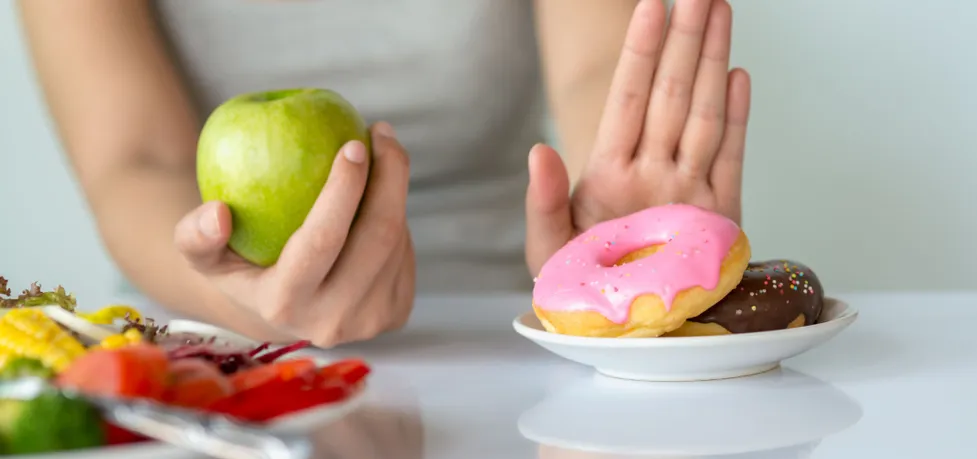Understanding and Overcoming Digestive Discomfort
Constipation is a condition that many people experience at some point in their lives. It's more than just a minor inconvenience; it can cause significant discomfort, bloating, and even pain. The struggle to have regular bowel movements can disrupt daily life, making it difficult to focus on anything else. But what causes this digestive dilemma, and more importantly, how can it be relieved?
One of the most effective ways to combat constipation is through diet. The foods you eat play a crucial role in how your digestive system functions. By choosing the right foods, you can not only relieve constipation but also prevent it from recurring. Let’s explore what foods are good for constipation and how they can help you find relief.
The Role of Fiber in Relieving Constipation
Fiber is often touted as the ultimate remedy for constipation, and for good reason. Dietary fiber adds bulk to your stool, making it easier to pass through the intestines. Unfortunately, many people don’t get enough fiber in their diets, leading to hard, dry stools that are difficult to expel.
Fruits are an excellent source of fiber, and some are particularly effective in relieving constipation. **Prunes**, often referred to as nature’s laxative, are rich in both fiber and sorbitol, a natural sugar alcohol that softens stools. **Apples** and **pears** are also great options, thanks to their high pectin content, which helps move stool through the digestive tract. **Berries**, such as strawberries, raspberries, and blackberries, are another delicious way to boost your fiber intake and ease constipation.
Tip: Incorporate a variety of high-fiber fruits into your daily diet to help keep things moving smoothly.
Whole Grains: A Staple for Digestive Health
Whole grains are another powerful ally in the fight against constipation. Unlike refined grains, which have been stripped of their fiber, whole grains retain all parts of the grain kernel, making them rich in fiber and nutrients. **Oats**, for example, are high in soluble fiber, which helps add bulk to your stool and makes it easier to pass. **Whole wheat bread** and **brown rice** are also excellent choices for maintaining regular bowel movements.
By replacing refined grains with whole grains in your meals, you can significantly increase your fiber intake and reduce the risk of constipation.
Tip: Start your day with a bowl of oatmeal or choose whole wheat bread for your sandwiches to keep your digestive system in good shape.
Legumes: The Fiber-Packed Powerhouses
Legumes, such as beans, lentils, and chickpeas, are not only rich in fiber but also packed with protein, making them a satisfying addition to any diet. Their high fiber content helps to bulk up stool and stimulate bowel movements, making them an excellent choice for anyone struggling with constipation.
Adding legumes to your diet can be as simple as tossing some beans into your salad, adding lentils to your soup, or enjoying a bowl of chili.
Tip: Regularly include legumes in your meals to help promote regularity and prevent constipation.
Leafy Greens: Nature’s Digestive Aids
Leafy greens, such as spinach, kale, and collard greens, are incredibly beneficial for digestive health. They are high in fiber and also contain magnesium, a mineral that helps draw water into the intestines, making it easier to pass stool. Incorporating leafy greens into your diet is a simple and effective way to alleviate constipation naturally.
Whether added to smoothies, salads, or sautéed as a side dish, leafy greens are a versatile and nutritious way to support your digestive system.
Tip: Aim to include a serving of leafy greens in at least one meal a day to keep your digestive system functioning optimally.
Seeds: Small but Mighty in Fighting Constipation
Chia seeds and flaxseeds may be tiny, but they pack a powerful punch when it comes to relieving constipation. These seeds are rich in soluble fiber, which forms a gel-like substance in the intestines, helping to soften stools and make them easier to pass.
Sprinkling chia seeds or ground flaxseeds on your yogurt, oatmeal, or salad is an easy way to add more fiber to your diet and support healthy digestion.
Tip: Keep a jar of chia or flaxseeds on hand to sprinkle on your meals for an instant fiber boost.
The Importance of Hydration
While fiber is crucial for relieving constipation, it’s only effective when paired with adequate hydration. Water is essential for keeping stools soft and easy to pass. Dehydration can lead to hard, dry stools that are difficult to move through the digestive tract, exacerbating constipation.
To prevent constipation, it’s important to drink plenty of water throughout the day, especially when increasing your fiber intake.
Tip: Aim to drink at least 8 glasses of water a day, and more if you’re consuming high-fiber foods.
Probiotics: Supporting Gut Health
A healthy gut is essential for regular bowel movements, and probiotic-rich foods like yogurt and kefir can help maintain a balanced gut microbiome. Probiotics introduce beneficial bacteria into the digestive system, which can help regulate bowel movements and alleviate constipation.
Choosing plain, unsweetened yogurt or kefir provides the best health benefits. Adding fresh fruit can enhance the flavor while also adding fiber.
Tip: Incorporate probiotic-rich foods into your diet regularly to support a healthy digestive system.
Conclusion
Constipation is a common issue that can significantly impact your quality of life, but it doesn’t have to be a permanent problem. By understanding what foods are good for constipation and making dietary adjustments, you can relieve discomfort and promote regular bowel movements. High-fiber fruits, whole grains, legumes, leafy greens, and adequate hydration are key to maintaining a healthy digestive system. Remember, consistency is crucial—make these foods a regular part of your diet to keep constipation at bay and support overall digestive health.
